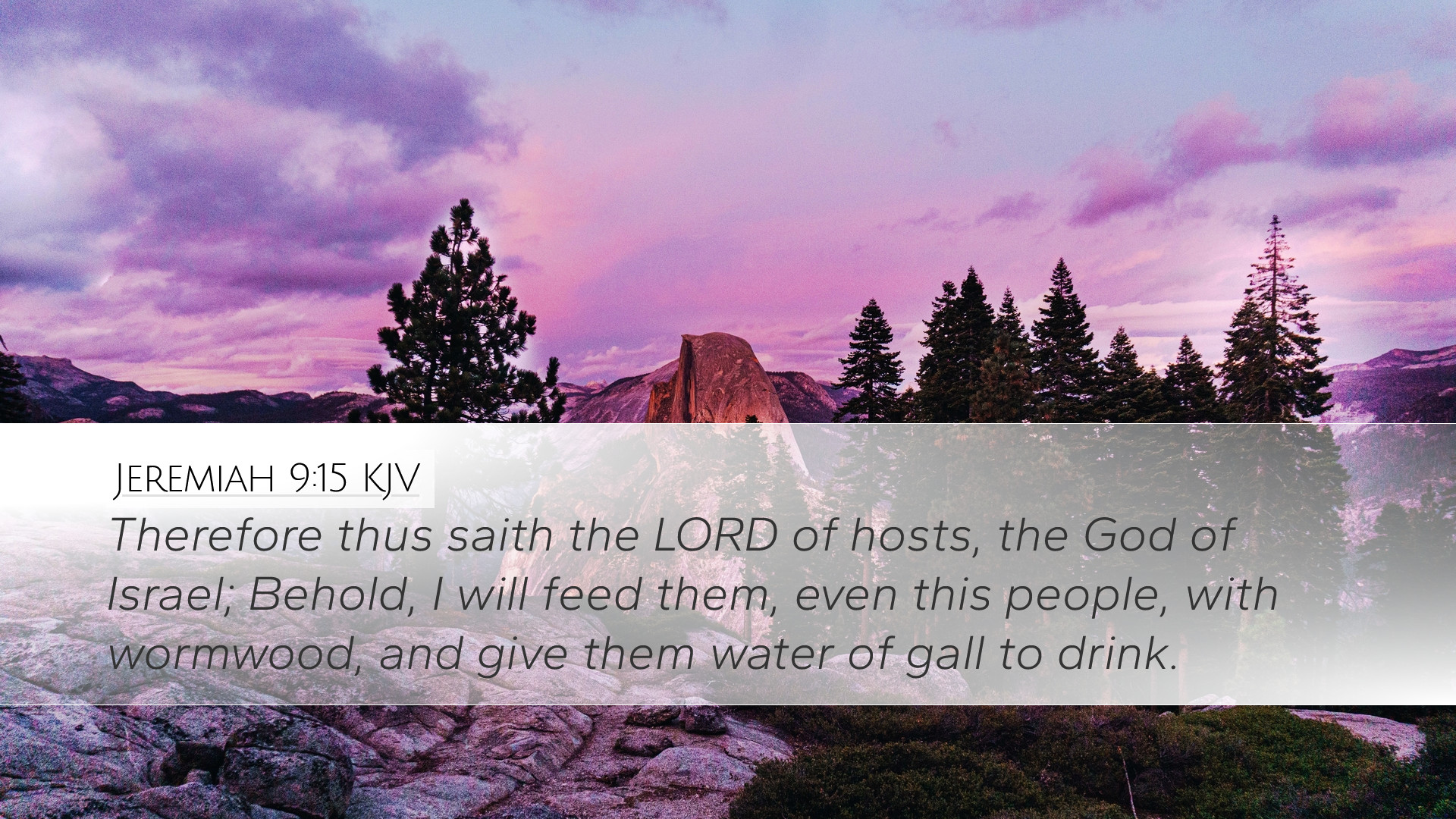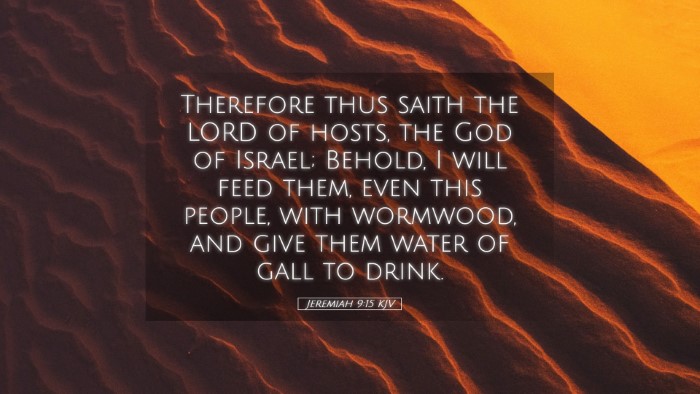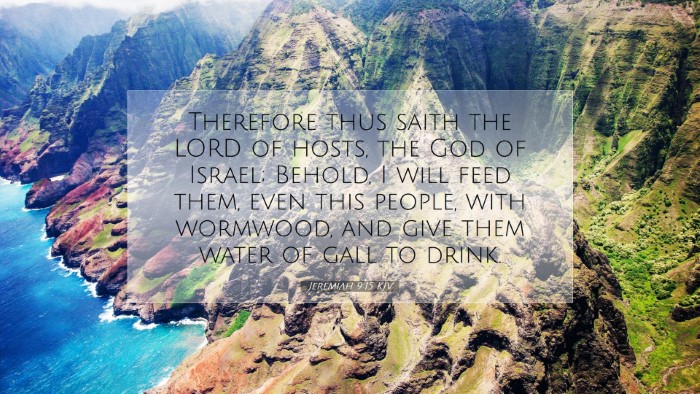Commentary on Jeremiah 9:15
Verse: "Therefore thus saith the LORD of hosts, the God of Israel; Behold, I will feed them, even this people, with wormwood, and give them water of gall to drink."
Introduction
The verse from Jeremiah 9:15 serves as a poignant reminder of the consequences of disobedience and the severity of divine judgment. The prophet Jeremiah often spoke on behalf of God, lamenting the spiritual decline of Israel and warning of impending doom. This verse encapsulates the heavy weight of God's impending wrath and judgment, using vivid imagery to convey the gravity of the situation. Within this commentary, we will draw insights from various public domain commentaries, providing a comprehensive understanding of its theological implications.
Contextual Analysis
Historical Context: The Book of Jeremiah is set during a turbulent time in Israel’s history when the nation faced moral decay and idolatry. Jeremiah's prophecies are delivered amidst the backdrop of impending exile and the Babylonian conquest. This verse specifically highlights the dire spiritual condition of the people and serves as a precursor to the calamities that they are to face as a result of their unfaithfulness.
Literary Context: Jeremiah 9 contrasts the characteristics of God’s people with the promised judgment. God’s sorrow over Israel emphasizes His desire for their repentance. The use of metaphors such as "wormwood" and "gall" captures the bitterness of their plight. Thus, understanding this verse requires acknowledging not just its meaning but also its placement in the prophetic narrative.
Insights from Commentators
Matthew Henry
Matthew Henry emphasizes God's righteous judgment upon Israel, who chose to forsake the covenant in favor of idolatry. He interprets "wormwood" and "gall" as symbols of the bitterness that comes from divine retribution. Henry points out that this bitterness signifies the people's choice to ignore God's warnings, and their punishment serves to lead them towards reflection and, ideally, repentance.
Albert Barnes
Albert Barnes elaborates on the metaphor of "wormwood," drawing connections to the Hebrew term's linguistic root which denotes bitterness and sadness. He interprets the "water of gall" as a means of illustrating the suffering of the Israelites—suggesting that they will find their sustenance becoming a source of distress rather than comfort. He notes that such a lamentation illustrates the gravity of their choice to turn away from God, which results in a deep spiritual desolation.
Adam Clarke
Adam Clarke provides a detailed explanation of the phrase “feed them with wormwood.” He indicates that this feeding symbolizes a corrective process, though harsh, intended to restore the erring nation. Clarke emphasizes that God does not punish without purpose; rather, His intent is to lead the people back to the path of righteousness, using dire circumstances as a means of divine correction. He also highlights the necessity of understanding God’s justice as ultimately rooted in His mercy.
Theological Implications
The implications of Jeremiah 9:15 are profound. Theologically, it signifies that divine justice cannot be neglected. God, in His holiness, must respond to sin with judgment, yet this judgment is always intertwined with avenues for repentance and restoration. For pastors and theologians, this verse underscores the need for preaching that addresses sin while offering hope for redemption. God’s words through Jeremiah remind us that, while punishment may be painful, it is effective for spiritual renewal.
This passage also invites discussions on the nature of God as both just and merciful. The imagery presented illustrates the serious consequences of sin, serving as an admonition for contemporary readers and leaders within the church to uphold righteousness and seek God's will earnestly. The verse teaches that divine judgment ultimately seeks to bring about transformation in the hearts of believers.
Conclusion
Jeremiah 9:15 is a powerful verse that encapsulates the themes of judgment, repentance, and the hope of reconciliation with God. Insights from Matthew Henry, Albert Barnes, and Adam Clarke provide a layered understanding of this scripture, highlighting the gravity of sin and the seriousness of God’s response to it. This verse continues to challenge believers to examine their own lives and to lead others towards a path of obedience and faithfulness in the sight of the Lord.


